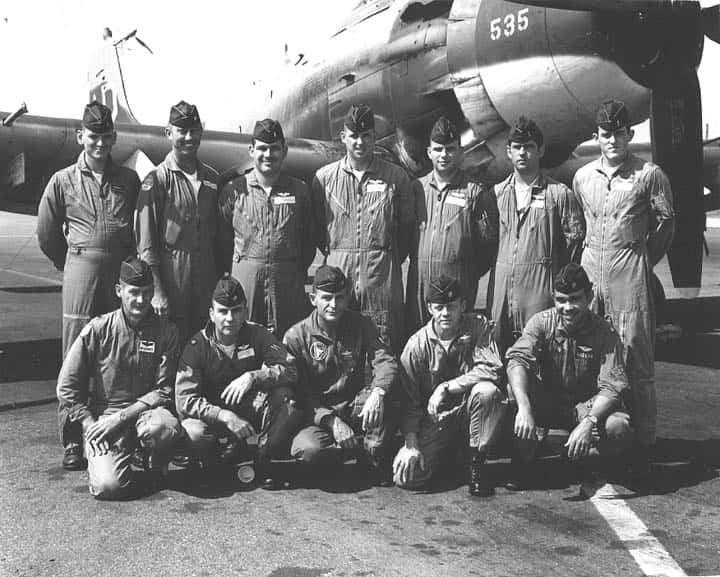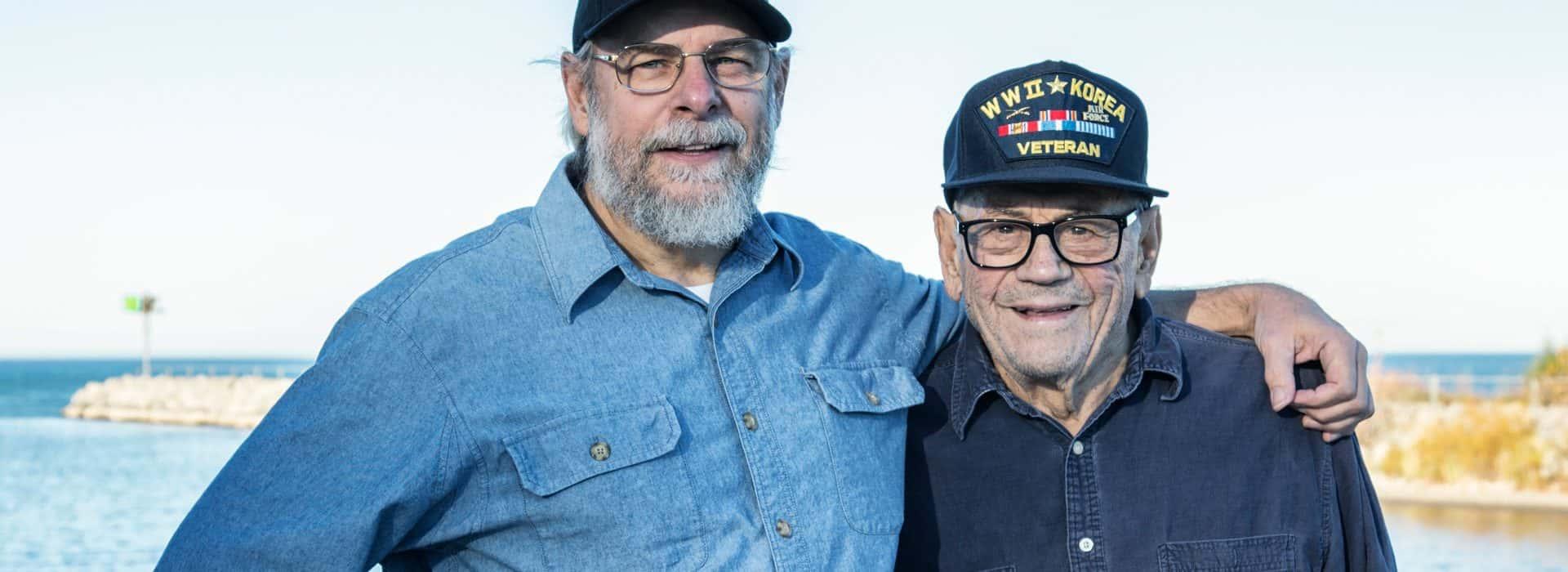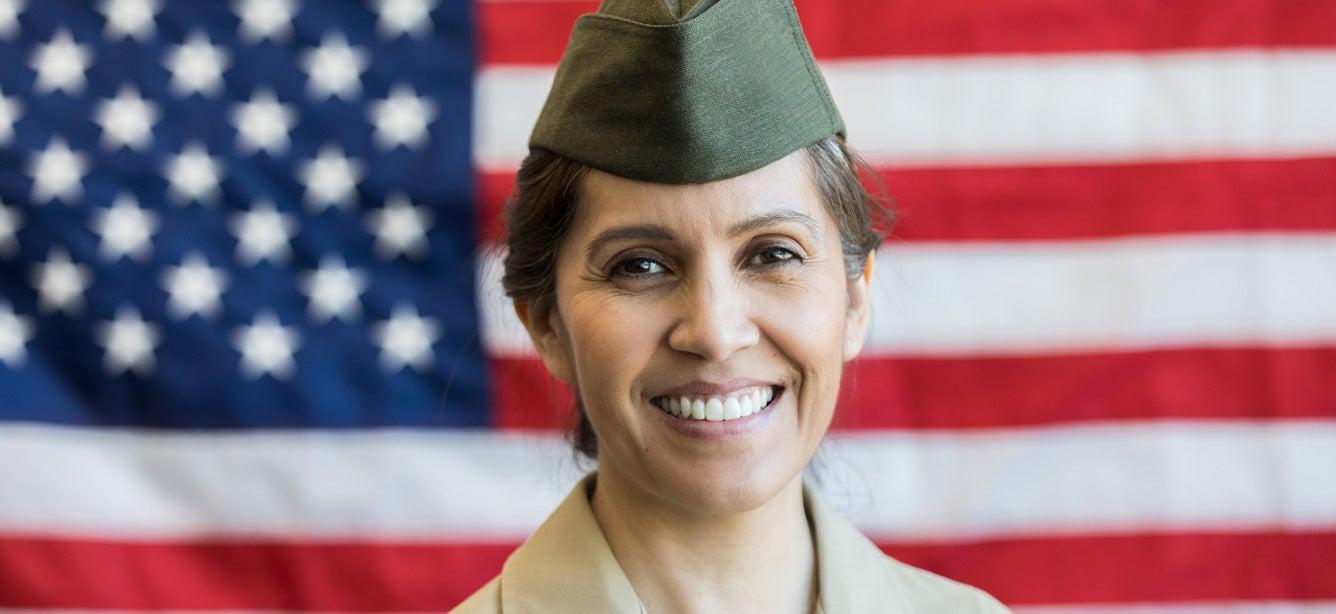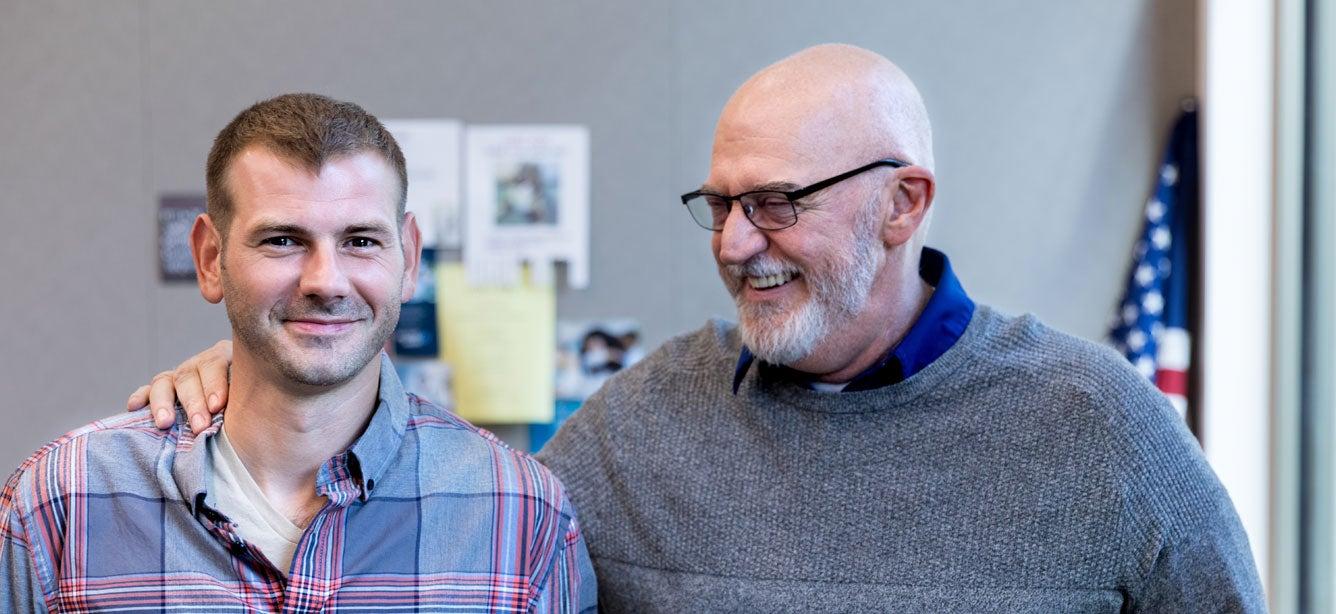
To honor and mark Veterans Day, former NCOA Program Manager Randy Feliciano talked with former National SCSEP Director Jim Seith about his service in the U.S. Air Force and how that training has impacted his outlook on aging.
Randy: Jim, tell me about your role when you were active duty in the Air Force.

Jim: I was an officer in the U.S. Air Force and served as second lieutenant and combat fighter pilot. I was 22-year-old when I arrived in Vietnam and 23 by the end of my mission, which was from June 1969 to June 1970. I flew a total of 571 combat hours and ran 207 missions in both Laos and Vietnam. If you are wondering why Laos, it’s because it was a stronghold for the Viet Cong. I flew close air support performing air strikes in an A-1 Sky Raider. Part of the time I was running rescue missions. If you ever see the movie Flight of the Intruder, I was basically searching for shot down ally pilots. We were able to locate them by using handheld two-way radios. Overall, my time in the service spanned 23 years in and out of country.
Randy: How does your experience as a veteran impact your outlook on aging?
Jim: My physical health has been directly affected by Agent Orange as a result of my time in war. Agent Orange affected my heart and brought about a cancer diagnosis, which is now thankfully in remission.
My overall outlook on aging hasn’t been affected necessarily, but my longevity has certainly been compromised.
Because of my rank, I had a lot of responsibility at a very young age. At one point I commanded 600 enlisted troops within my squadron. The mental stress of these responsibilities prepared me for future leadership roles in the nonprofit sector.
Randy: What advice can you offer aging and disability professionals to better connect with veterans in their communities?
Jim: Sometimes people think they need to start with the Veterans Administration (VA) to help veterans. Although they’re important, I would argue that anywhere aging veterans reside there are local veteran-focused organizations like the local Rotary Clubs, Senior Centers, Lions Clubs, and the VFW that are helping veterans.
Organizations like the local Rotary Clubs, Senior Centers, Lions Clubs, and the VFW are great ways to connect with veterans of the Vietnam era and earlier wars.
Also assisted living residences and nursing homes are home to more aging veterans.
Randy: What’s the one thing you wish you knew before leaving the service and re-entering civilian life?
Jim: Three years after Vietnam I was assigned to Air Staff Training. It was a bureaucratic position, managing budgets. For that year I learned how to track budgets. In this role I developed the finance and operations skills to run an organization. I even testified before Congress and other elected officials.
When I left the military I was Director of the Joint Chiefs of Staff at the Pentagon. I was involved with administrative tasks dedicated to the mission of the military. Quite frankly, I was tied up in the bureaucracy of the military and dealt heavily with the politics of the service.
Re-entering civilian life it was the reality that my future colleagues could not relate to my life experiences with war and combat. That had an impact on how I viewed co-worker relationships to an extent for quite some time.
For me, the most difficult aspect of my experience was missing my family. Early on I left my two-year-old and newborn for several long tours of duty, which was extremely hard on a young family. Moving every 18 months was also a heavy burden, but you get used to it.
Randy: What tips do you have for aging with the best health and economic security?
Jim: When you are young and you have your health, you think you are immortal, but before you know it you will be old. You need to take care of your health. That includes serious exercise! I ran marathons. I also invested 50% of my salary for retirement.
Advance planning is critical. Don’t be afraid to invest. My advice is to stop pretending you are immortal. If you don’t take care of your health you don’t have anything. I am very fortunate that I get to enjoy life because I planned ahead of schedule. Don’t forget to plan ahead while you are still young because next thing you know you are 65!
We thank Jim and all service members for their dedication and sacrifices today and every day.


